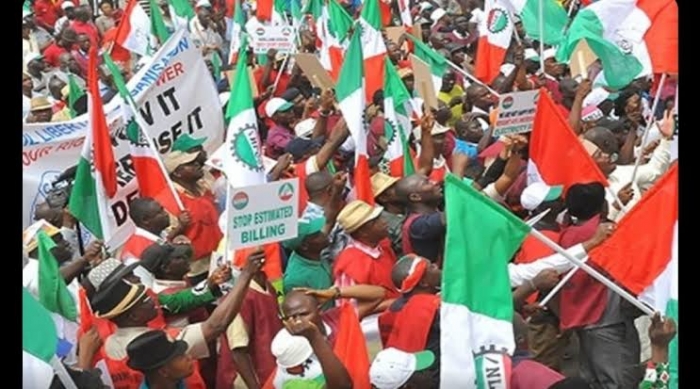As Nigerian workers join the global commemoration of Workers’ Day, the mood is far from celebratory. Instead, the Nigeria Labour Congress (NLC) has painted a grim picture of widespread suffering, blaming President Bola Tinubu’s economic policies for exacerbating the cost-of-living crisis and pushing millions deeper into poverty.
Since Tinubu took office in May 2023, his administration’s economic policies—including the abrupt removal of fuel subsidies and the floating of the naira—have triggered skyrocketing inflation, a collapsing currency, and unprecedented economic hardship. Official data underscores the severity of the crisis:
- Inflation has surged to 33.2% (March 2024), the highest in nearly three decades, with food inflation at a staggering 40%.
- The naira has lost over 70% of its value against the dollar since the forex liberalization policy, driving up import costs and crippling businesses.
- Fuel prices have jumped by over 400% since subsidy removal, pushing transport and food costs to unbearable levels.
- Despite a nominal N70,000 minimum wage, real wages have plummeted, with the National Bureau of Statistics (NBS) reporting that 63% of Nigerians (133 million people) are multidimensionally poor.
NLC: "Workers Impoverished, Dehumanized"
NLC President Joe Ajaero delivered a scathing assessment, declaring that workers have faced "one anti-worker policy after another" under the current government.
"The ruling elite have ganged up against workers and the masses," Ajaero said. "They promote impoverishment, exploitation, and slavish wages while enforcing oppressive policies dictated by global financial institutions."
He highlighted the struggle to implement the N70,000 minimum wage, with many state and federal agencies defaulting, leaving workers struggling to survive.
A System in Crisis
Ajaero accused the Tinubu administration of deepening Nigeria’s "two-class society"—where the rich grow wealthier while workers and the poor bear the brunt of austerity measures.
"Capitalism devours jobs, strips dignity, and widens inequality," he said. "The state, instead of protecting workers, has become an enforcer of exploitation."
Despite the challenges, the NLC vowed to intensify its fight for living wages, full implementation of labour laws, and resistance against neoliberal policies.
"Our liberation will not be gifted—it must be won," Ajaero declared. "We must demand not just crumbs, but our fair share of the bread we bake."
What’s Next?
Analysts warn that without urgent intervention, Nigeria’s cost-of-living crisis could spiral further, fueling social unrest.
As the world marks Workers’ Day, Nigeria’s labor movement stands at a crossroads—fighting not just for better wages, but for survival in an economy that has left millions behind.
